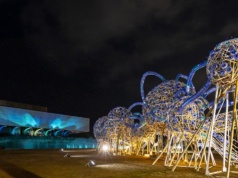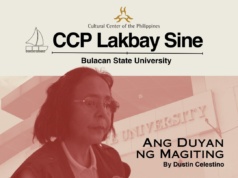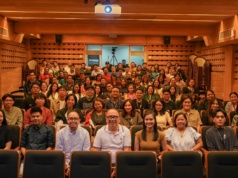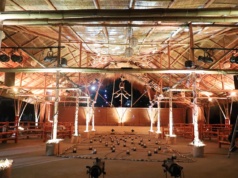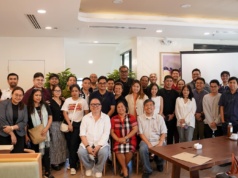In a joint effort to discover and empower the next big innovation addressing mobility, Impact Hub Manila and LBC awarded SkyEye, Inc. as the winning team of the Impact Hub Fellowship on Innovation in Mobility with LBC. SkyEye received a grand prize amounting to PhP750,000, which includes seed funding of PhP320,000.
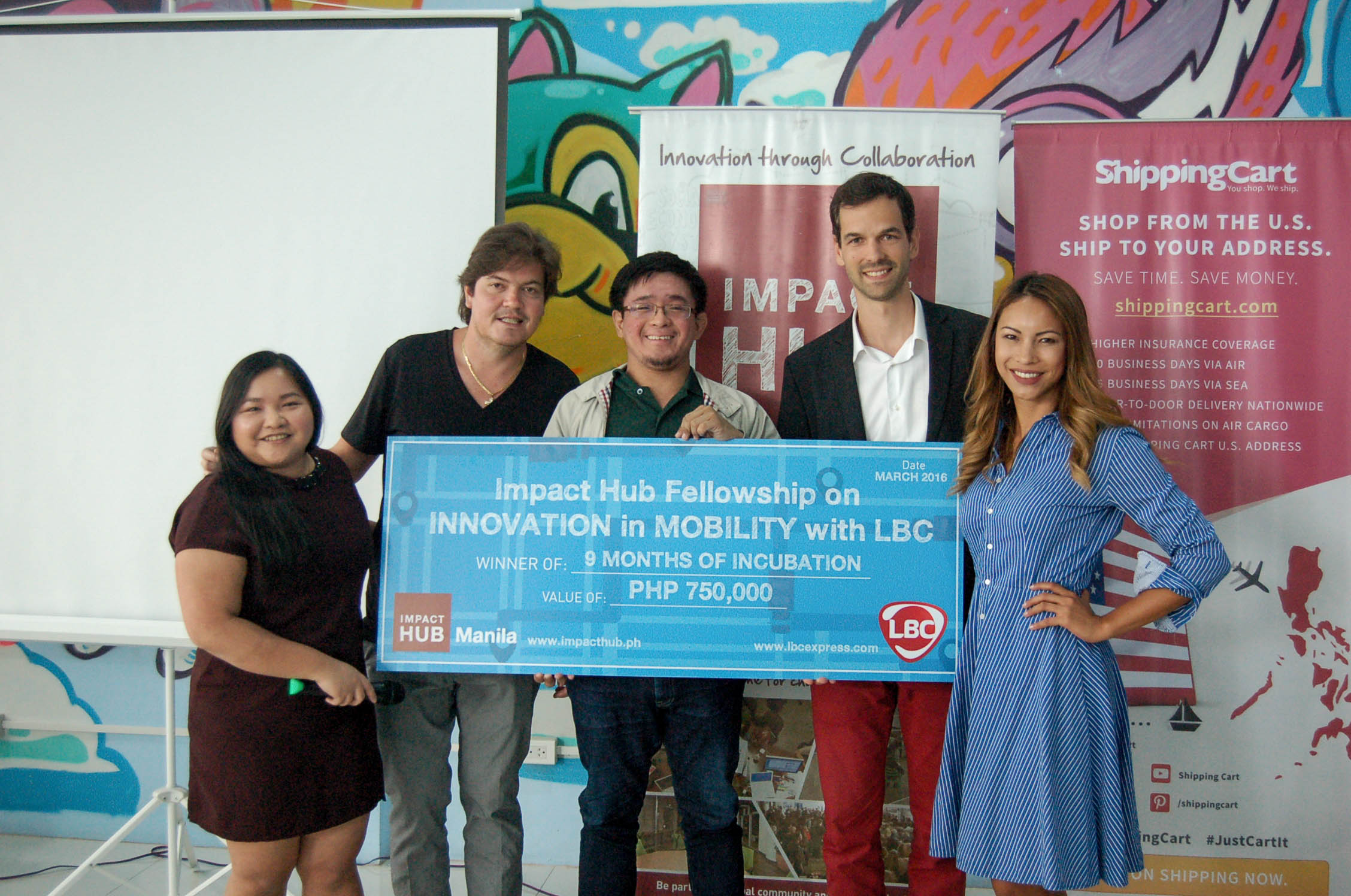
SkyEye, Inc. was started by a group of researchers and engineers gathering weather data and producing maps with UAV (Unmanned Aerial Vehicle or drone) technology. They have since grown into a technicallyskilled enterprise dedicated to maximizing UAV technology in various applications. From comprehensive and cost-efficient land surveying, to deed titling, infrastructure planning and construction, to humanitarian response. It is their mission to provide clients with the optimized technology as well as the guidance to make better decisions about property, land, and developments.
The winning Fellow was among three teams that pitched their businesses to a panel of industry experts and investors led by LBC Chief Innovation Officer Dino Araneta.
Aside from SkyEye, two other companies entered the 3-month Cohort Phase of the Fellowship. Food Planner, Inc. are a post-harvest food processing initiative taking food direct from the farmers to the market. They are pioneering the production of dehydrated food products. Wave, Inc. are a ride-sharing, booking, and social platform that acts as an affordable alternative for daily commuters and urban professionals. The teams were exposed to esteemed mentors and gained access to a global network of innovators as well as the local start-up community.
“Our team was able to grow really fast over the last three months,” said Matthew Cua, cofounder of SkyEye, Inc. “As engineers, thinking about business models and thinking about sales is not a natural thing for us. The whole program enabled us to better communicate our value proposition and make it more compelling. We were able to make our tool sets as entrepreneurs even stronger and gain valuable insights from industry experts and other start-ups. Overall, we are a stronger company now.”
The judges chose SkyEye, Inc. because of their innovative approach, combining hardware, software, and highly talented people to find creative and practical uses for drones. “We believe their pioneering use of drone technology has a huge potential to bring positive change to the Philippines and abroad. Through further development, we anticipate a diverse range of solutions and applications in the subject of mobility,” Araneta explained. “Through the Fellowship, we’ve seen SkyEye’s improvements first-hand, taking them to a stage where their company is ready to scale. Together, we will be able to gain even more traction in the next nine months of the Fellowship on Innovation in Mobility.” he added.
“All three teams went through an intensive 3-month cohort phase where we observed them in action; how they work, how quick they learn and adapt, and how they progress,” said LizAn Kuster, co-founder of Impact Hub Manila. “We look forward to hosting more Incubation and Innovation Programs with excellent partners such as LBC, who are driven by innovation, and actively support and incubate start-ups and social enterprises such as these.”
All the people involved in the Fellowship felt that the initiative exceeded their expectations because all three finalist teams, as well as those that joined from the beginning, took big steps in refining their business skills and preparing the next phase of their respective companies. It was as much a learning experience for the organizers as much as it was for the participants. “LBC gained insight into the most innovative companies and minds in the mobility sector and was able to create partnerships with several of the more than 40 applicants,” Araneta said. “This is part and parcel of our effort in LBC to inspire minds, and lead in innovation, as this is the best way for us to really progress as a people and as a country,” he added.
Apart from the PhP 320,000 cash prize, SkyEye will receive continued support from LBC and Impact Hub Manila for the next nine months to further develop their innovative drone-surveying service. They gain access to a collaborative workspace, valuable local and global network, focused mentoring, and continued skill development worth more than PhP430,000.
Impact Hub Fellowship on Innovation in Mobility with LBC Finalists:
SkyEye, Inc. (WINNER)
Representatives/Proprietors: Matthew Cua
Realizing a deficiency in the real estate market, with at least 12 million parcels of untitled land, and unnecessarily long and gruelling acquisition and transactional processes, the team at SkyEye provide customers an efficient alternative to comprehensively survey various land and properties with the help of customized drone technology as well as detailed mapping software.
Wave
Representatives/Proprietors: Nikolas Escobal, John Ching
A welcome addition to the growing sharing economy, Wave is a community-based ridesharing service with a polished strategy targeting residential communities and the urban professionals seeking even more affordable options for their daily commute.
Food Planner
Representatives/Proprietors: Regine Ceballos, Gerissa Ranieses, Christa de Ramos
A post-harvest food processing initiative that focuses on farmers, who lack access to the mainstream commercial market. By targeting the foundation of the agricultural supply chain, they are attempting to optimize value chain management by directly connecting the raw material suppliers (farmers) to their end clients (markets, wholesalers, restaurants, and more).

